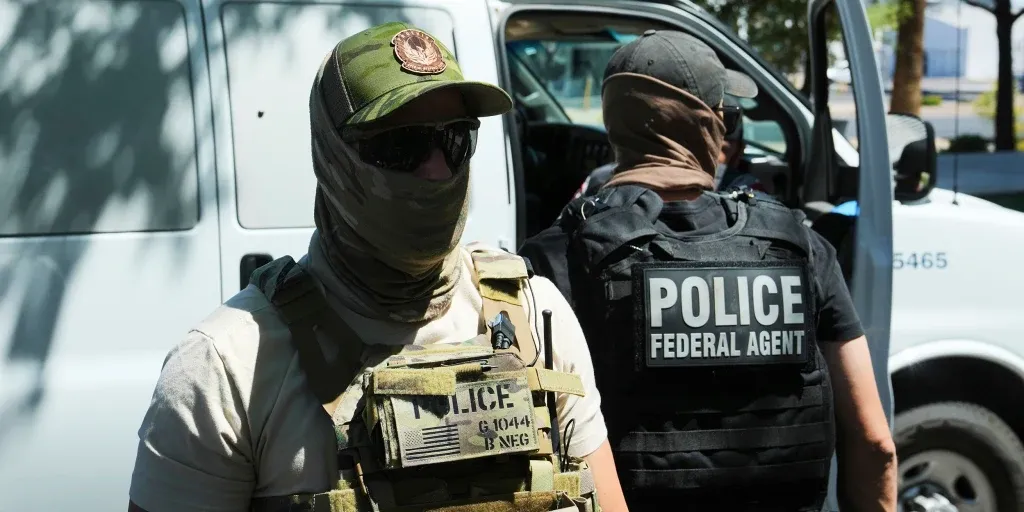In a legislative move with both political and humanitarian dimensions, U.S. Representatives Adriano Espaillat and Dan Goldman, along with 37 other Democratic members of Congress, have introduced a new bill titled the "No Secret Police Act." The proposed legislation aims to end the use of face masks by Immigration and Customs Enforcement (ICE) agents during arrests, particularly those targeting immigrant communities.
This initiative is a direct response to practices described as reminiscent of authoritarian regimes, where ICE officers conduct arrests while wearing face coverings and without showing any official identification or insignia. Such actions, critics argue, heighten fear and uncertainty within immigrant communities. Congressman Espaillat, Chair of the Congressional Hispanic Caucus, emphasized that those working in a democratic society should not operate anonymously. He stressed that law enforcement officers must be visibly identifiable, not act like secret police agents from oppressive regimes.
Congressman Goldman, a former federal prosecutor, noted that throughout his career he had never seen ICE agents wearing masks. He stated that these practices are not about protecting officers but about "terrorizing immigrant communities." He pointed out that these tactics are used against non-violent individuals who are following legal procedures, adding that the United States is not a dictatorship. According to him, the proposed law is essential to ensure law enforcement is carried out by clearly identifiable individuals.
Civil society organizations responded strongly in support of the bill. Murad Awawdeh, President of the New York Immigration Coalition, described current practices as “a shadow war on immigrants,” and called for the swift passage of the law to protect constitutional rights. Natalia Aristizabal of Make the Road New York stated that ICE has become an unaccountable, rogue force, and this legislation is a crucial step toward curbing its unchecked behavior.
The proposed bill would amend the Homeland Security Act of 2002 by requiring all Department of Homeland Security (DHS) agents—including those from ICE and CBP—to display their official insignia and clearly identify themselves during arrests. It would also prohibit agents from wearing any masks or coverings that obscure their identity during detentions. Furthermore, the legislation directs DHS to conduct research into technologies that enhance the visibility of law enforcement identifiers under various conditions, including different weather and lighting.
In conclusion, the No Secret Police Act represents an effort to recalibrate the relationship between law enforcement and immigrant communities, aiming to strike a balance between security and transparency at a time when fears of immigration becoming militarized and oppressive continue to rise.
